Here you can meet the first cohort students enrolled in the EPSRC CDT in Chemical Biology - Empowering UK BioTech Innovation.
Our 2024 Student Profiles
- Konstantina Arvaniti
- Max Barnett
- Hayden Jit Hei Cheung
- Ido Dan
- Bracha Lawrence
- Chelsie (Xinran) Li
- Fawaz Raja
- Rie Rønnow
- Seshagiri Sakthimani
- Rohan Sekhri
- Jak Soon
- David Tsang
- Athos Vacanas
- Daisy Williams
- Yasmin Gariba-Hamilton
- Srija Ghosh
- Kyan Li
- Guanghao Xu
Name 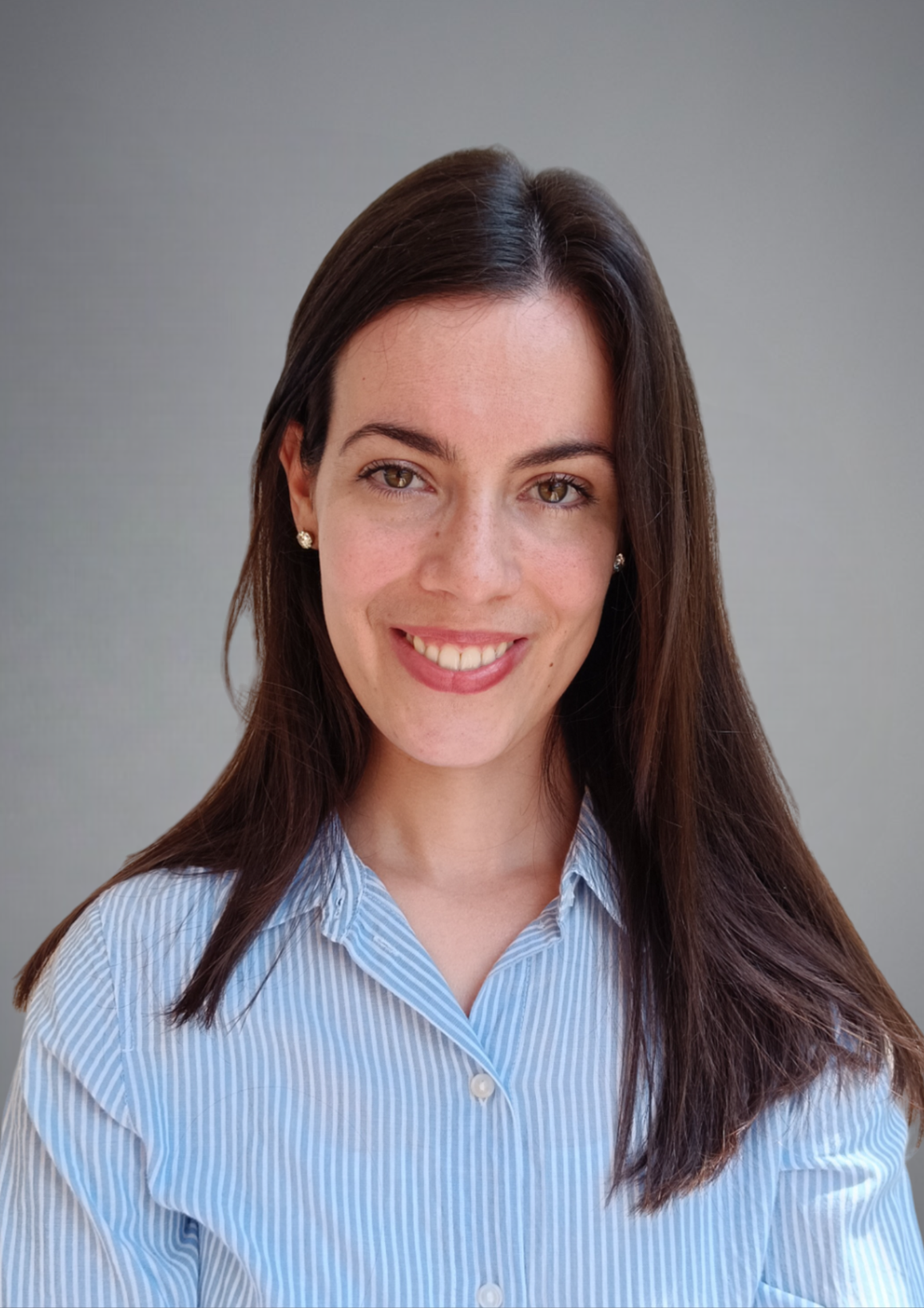
Konstantina Arvaniti
Project Title
Systematic prediction, validation, prioritization and on-target lead discovery for next-generation antimicrobials
Co-sponsored by the Institute of Chemical Biology EPSRC Centre for Doctoral Training and The NIHR Imperial Biomedical Research Centre (BRC)
What were you doing before enrolling in the ICB CDT Programme?
Before joining the ICB CDT, I completed my MRes in Drug Discovery and Development at Imperial College London. My MRes project, supervised by Prof. Ed Tate and Dr Andrew Edwards, focused on the identification of novel small molecule inhibitors targeting bacterial DNA repair to promote the immune clearance of drug-resistant bacterial pathogens and potentiate antibiotics. Since completing my MRes, I worked as a tutor for high school students, with intervention in chemistry, math, and biology.
Why did you choose to apply for your particular project?
Having focused on identifying novel therapeutics to overcome antimicrobial resistance during my MRes, I wanted to expand my knowledge, through the implementation of chemical biology, and contribute to antimicrobial discovery. This project aims to establish a high-throughput approach for discovering, validating, and selectively targeting chemically tractable residues across any pathogen - which could present a new paradigm for antimicrobial drug discovery—but it also offers the opportunity to work closely with an interdisciplinary supervisory team with expertise in computational chemistry, machine learning, chemical biology, microbiology, and functional chemoproteogenomics. I am also excited that the project is co-funded by the Institute of Chemical Biology EPSRC Centre for Doctoral Training and the NIHR Imperial Biomedical Research Centre. This PhD project will allow me to establish myself as a chemical biologist, with a long-term ambition of leading a research group conducting impactful research on the frontline of the battle against drug-resistant pathogens.
What are you looking forward to the most within the CDT programme?
I am most looking forward to this incredible opportunity of being part of a diverse cohort of students learning from and collaborating with leading experts within the ICB network. The CDT offers comprehensive training on a diverse skill set. From the Science and Communication course with the BBC to the EVOLVE placement programme and the entrepreneurship BOOST grant, the transferable skills will be invaluable, and I look forward to participating.
Please tell us a fun fact about yourself!
I am an open-water swimmer, swimming all year round.
Name
Max Barnett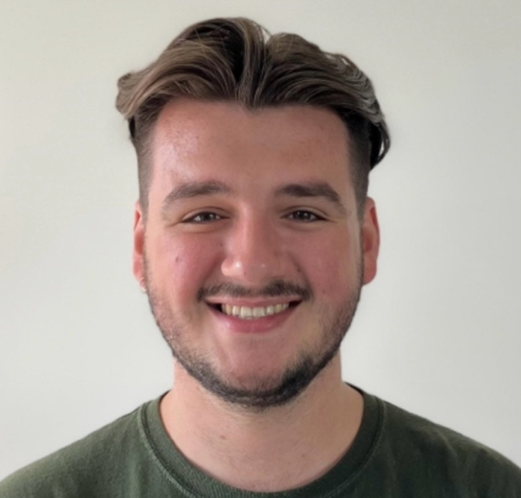
Project Title
Phosphine Oxides as Rising Stars in Drug Discovery
This project is co-sponsored by the Institute of Chemical Biology EPSRC Centre for Doctoral Training and UCB
What were you doing before enrolling in the ICB CDT Programme?
Since graduating from The University of Exeter, I have been working within the drug discovery industry as a Research Chemist at a contract research organisation. In this time, I have had the opportunity to work on several drug discovery programmes from developing pro-fungicides and synthesising nitrogen mustard analogues to anti-cancer therapeutics and antibacterial agents.
Why did you choose to apply for your particular project?
What intrigued me most about this project was its sense of novelty – Phosphine oxides a quite uncommon within commercially available therapeutics but show promising characteristics when utilised correctly within future drug molecules. I also liked this project as it will allow me to continue my research within medicinal chemistry and utilise the skills I have gained over my academic and professional career.
What are you looking forward to the most within the CDT programme?
I am really looking forward to taking the next step in my academic career, and utilising all the opportunities that the CTD has to offer for my professional development both in and out of the lab!
Please tell us a fun fact about yourself!
In the past two years I have taught myself how to crochet!
Name
Hayden Jit Hei Cheung
Project Title
Understanding and optimising RNA therapeutic delivery, efficacy, and toxicity with chemical biology
Co-sponsored by the Institute of Chemical Biology EPSRC Centre for Doctoral Training and AstraZeneca
What were you doing before enrolling in the ICB CDT Programme?
I completed my MSci in Medicinal Chemistry at UCL, where I explored nucleic acid therapeutics through my master’s project on plasmid-peptide conjugates, supervised by the Booth and Tabor groups. During the summer, I investigated the total synthesis of an antibacterial peptide at the UCL School of Pharmacy under the mentorship of Dr Rachael Dickman. Additionally, I played a role in the lead development of a peptidomimetic inhibitor using photo-cross-linking screening techniques at the University of Hong Kong.
Why did you choose to apply for your particular project?
I applied for this project because of its focus on addressing the key challenges in RNA therapeutics—delivery, efficacy, and toxicity—areas critical to the safe and effective application of these therapies. My background in nucleic acid manipulation and photo-affinity labelling aligns with the skills needed to explore these issues. Through chemical biology approaches, I aim to contribute to a deeper understanding of RNA therapeutic mechanisms, helping to optimise their design and improve their safety profile. This project offers an opportunity to apply my expertise to a rapidly evolving field with the potential for significant medical impact.
What are you looking forward to the most within the CDT programme?
I am particularly excited about the opportunity to broaden my skill set beyond traditional academics in FutureLab. I would love to learn technologies like 3D modelling and biohacking — skills that are increasingly valuable in today’s scientific landscape. I'm also looking forward to getting to know my cohort, fostering friendships, by participating in cohort bonding activities and the RRI retreat!
Please tell us a fun fact about yourself!
Outside my studies, I train hard in Judo and dream of obtaining a black belt one day. I am also cohabiting with an adorable black cat unoriginally named Meow Meow. He is the bane of my existence yet love of my life at the same time, iykyk.
Name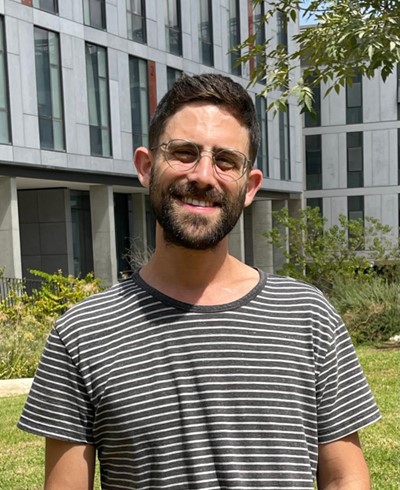
Ido Dan
Project Title
Transforming our understanding of electron transfer in membrane proteins through automation, additive manufacturing and spectroelectrochemistry
What were you doing before enrolling in the ICB CDT Programme?
I completed a bachelor’s degree in Chemistry at Ben-Gurion University, focusing on the chemistry of biological systems. During my third year, I spent a semester abroad at the University of Edinburgh that sparked my interest in studying in the UK. After graduation, I worked as a research assistant in the Bar-Sadan group, where I investigated the electrocatalytic activity of nanoparticles.
Why did you choose to apply for your particular project?
I am intrigued by the application of physical chemistry techniques to investigate biological processes, particularly the role of metals in biological systems. My undergraduate studies provided me with practical experience in biochemistry, spectroscopy, and electrochemistry, which I am eager to apply to this project. I am especially excited about the methodology development aspect, as it offers innovative approaches to studying complex biological processes.
What are you looking forward to the most within the CDT programme?
I am looking forward to the programme’s training that extends beyond my research focus. I am excited to gain the expertise necessary to effectively translate my ideas into reality and to work in an environment that promotes collaboration and knowledge sharing among students.
Please tell us a fun fact about yourself!
I spent six months living in Madrid, where I enjoyed the local culture, amazing food, and learning Spanish.
Name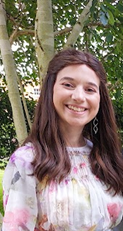
Bracha Lawrence
Project Title
Target Directed Synthesis of Protein-Protein Interaction Inhibitors
Co-sponsored by the Institute of Chemical Biology EPSRC Centre for Doctoral Training and The NIHR Imperial Biomedical Research Centre (BRC)
What were you doing before enrolling in the ICB CDT Programme?
I completed my chemistry MSci degree at Imperial College London.
Why did you choose to apply for your particular project?
I thoroughly enjoyed exploring the intersection of Chemistry and Biology, especially in the context of drug development. I applied for this PhD project to gain hands-on experience in early-stage drug discovery, where I can learn various techniques and contribute to this dynamic and promising field of science.
What are you looking forward to the most within the CDT programme?
I am looking forward to the the elements of the CDT that lie outside of the core research project and will allow me to develop skills and an understanding of scientific applications in industry and business settings.
Please tell us a fun fact about yourself!
I have lived on three different islands
Name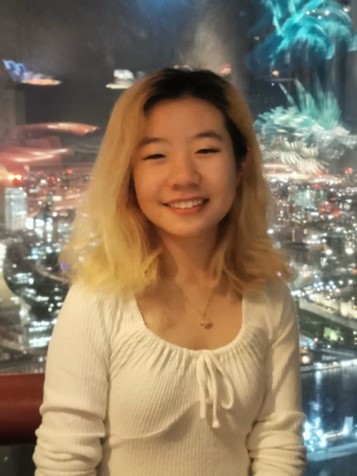
Chelsie (Xinran) Li
Project Title
Unravelling the role of G-quadruplex structures in brain ageing and neurodegeneration
This studentship is sponsored by the Faculty of Natural Sciences
What were you doing before enrolling in the ICB CDT Programme?
I completed my MSci degree in Chemistry with Medicinal Chemistry at Imperial College London. My master’s project was focusing on development of small-molecule photoswitchable ligands targeting the Sonic Hedgehog pathway.
Why did you choose to apply for your particular project?
During my undergraduate I took a course in chemical biology, which made me realise my interests in applying my chemistry knowledge under biological context. I was captivated by the versatility of chemistry in exploring and modifying biological processes, especially the insights it could provide in disease mechanisms and treatments. This project aims to investigate the formation of G-quadruplexes (G4s) and their functions in ageing and neurodegenerative diseases, which aligns perfectly with my research interests. This project is co-supervised by expertise from both chemistry and brain science department, which provides me the opportunity to dig deeper in both disciplines, expanding my skillset and knowledge. I am also excited about the potential of this project. With so many aspects unknown about G4s and ageing/neurodegenerative diseases, this project would contribute towards our understanding in ageing/neurogenerative diseases.
What are you looking forward to the most within the CDT programme?
I am looking forward to working with scientists from diverse disciplines, sharing ideas and discussing science with like-minded people. I am also excited about developing essential soft skills that would allow me to grow into an independent scientist and benefit my future career.
Please tell us a fun fact about yourself!
I am also a huge music enthusiast! I play flute, sing (pretty well), a bit of guitar and DJ, and I’m currently a drum-player wannabe.
Name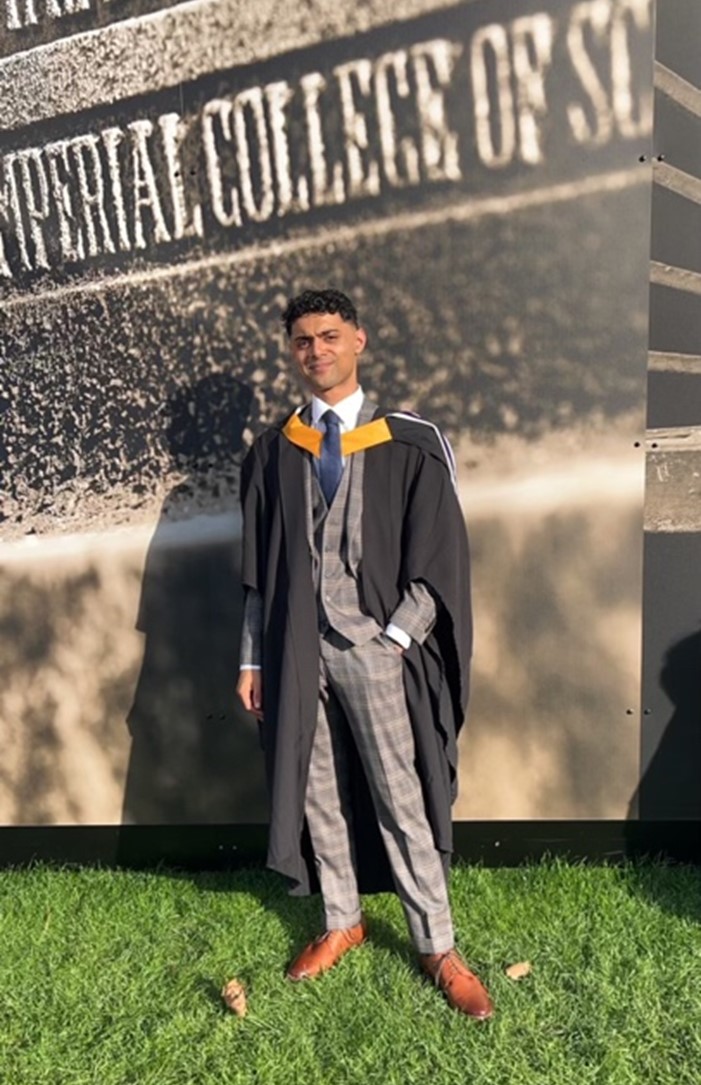
Fawaz Raja
Project Title
Visualising the effects of pollution nanoparticles on respiratory epithelial cells at the air-liquid interface
Co-sponsored by the Institute of Chemical Biology EPSRC Centre for Doctoral Training and The NIHR Imperial Biomedical Research Centre (BRC)
What were you doing before enrolling in the ICB CDT Programme?
Before joining the ICB CDT Programme, I graduated from Imperial with a BSc in Chemistry and spent a year working in the pharmaceutical industry at an early-stage drug development company in Manchester. Following that, I returned to Imperial to pursue an MRes in Chemical Biology with Bio-Entrepreneurship, where my research focused on the topographical characterisation of alpha-synuclein aggregates, contributing to a deeper understanding of protein misfolding in neurodegenerative diseases and reinforcing my decision to pursue a PhD.
Why did you choose to apply for your particular project?
Moving from the countryside to London made me acutely aware of the impact of urban pollution on our health. This experience sparked my interest in understanding how pollutants affect the body over time. My passion for cell culture, microscopy, and environmental health made this project a perfect fit, as it allows me to explore these interests while contributing to research that addresses a growing public health concern.
What are you looking forward to the most within the CDT programme?
Having already experienced the CDT as an MRes student, I’ve come to appreciate the wealth of opportunities it offers, both academically and socially. I’m particularly excited about the outreach and science communication programme at the BBC, as it will provide invaluable skills that I can use throughout my career. I look forward to honing my ability to communicate complex scientific ideas to diverse audiences and making a lasting impact through public engagement.
Please tell us a fun fact about yourself!
I’m a trained bartender.
Name
Rie Rønnow
Project Title
Developing novel transition metal complexes to enhance crop yields
What were you doing before enrolling in the ICB CDT Programme?
I completed my MSci in Chemistry with Medicinal Chemistry at Imperial. My project was focused on the synthesis of dual-action therapies for cancer chemotherapy.
Why did you choose to apply for your particular project?
I was eager to do a multi-disciplinary project and expand my skills beyond the synthetic chemistry I am used to. The opportunity to work on something with meaningful real-world applications was also a priority for me, making this project an ideal fit.
What are you looking forward to the most within the CDT programme?
I am looking forward to the opportunity to work in a multidisciplinary environment and connecting with like-minded individuals.
Please tell us a fun fact about yourself!
I am an identical twin and my twin joined Imperial at the same time as me.
Name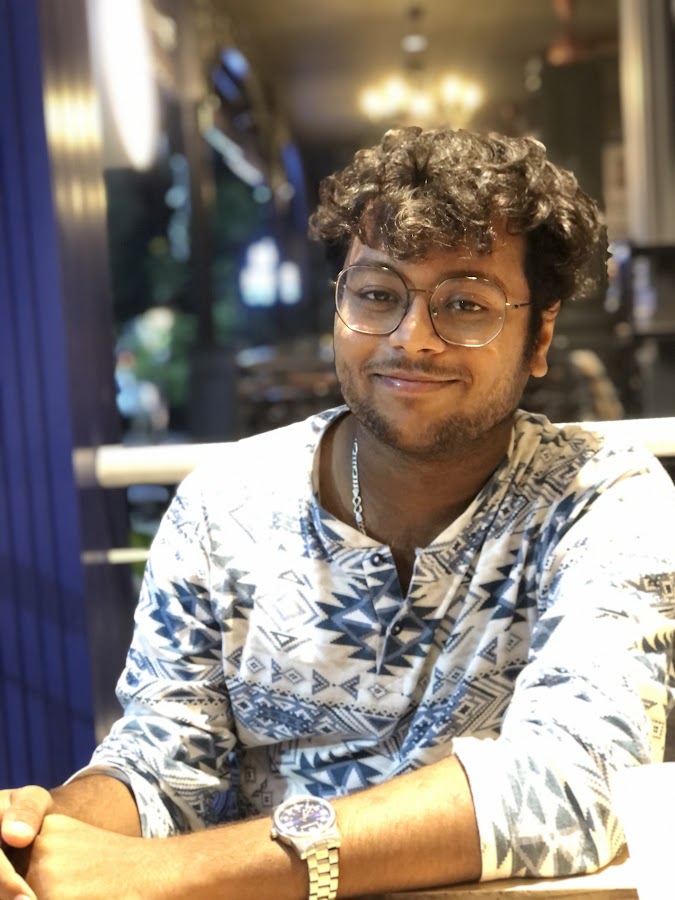
Seshagiri Sakthimani
Project title
Highly multiplexed detection of cancer biomarkers from clinical samples using nanopore sequencing
This project is co-sponsored by the Institute of Chemical Biology EPSRC Centre for Doctoral Training and Oxford Nanopore Technologies
What were you doing before enrolling in the ICB CDT programme?
Before joining the CDT, I pursued an MRes in Bioengineering at Imperial College London. My research focused on characterising autophagy activity in conventional dendritic cells type 2 (cDC2s) within the tumour microenvironment, co-supervised by Dr. Pedro Ballester and Dr. Ghita Ghislat. Prior to that, I completed my bachelor’s degree of Pharmaceutical Technology at Anna University, Chennai. I also interned at the National Centre of Biological Sciences where I worked on identifying amino acid auxotrophy trends across different organisms in collaboration with Dr. Sunil Laxman and Dr. Aswin Sai Narain Seshasayee.
Why did you choose to apply for your particular project?
During my previous project on autophagy activity, I became deeply interested in cancer detection, especially in ways that could make it more efficient and affordable. This inspired me to apply for a CDT project with a similar focus—using nanopore sequencing to detect liver cancer. It felt like a natural progression of my interest in improving cancer diagnostics.
What are you looking forward to most in the CDT programme?
I am particularly excited to meet and collaborate with other members of the cohort, learn about the diverse projects, and further develop my skills as a researcher.
Please tell us a fun fact about yourself!
I love going on long walks and discovering underrated spots. If I'm not in the lab, you can probably find me wandering around somewhere!
Name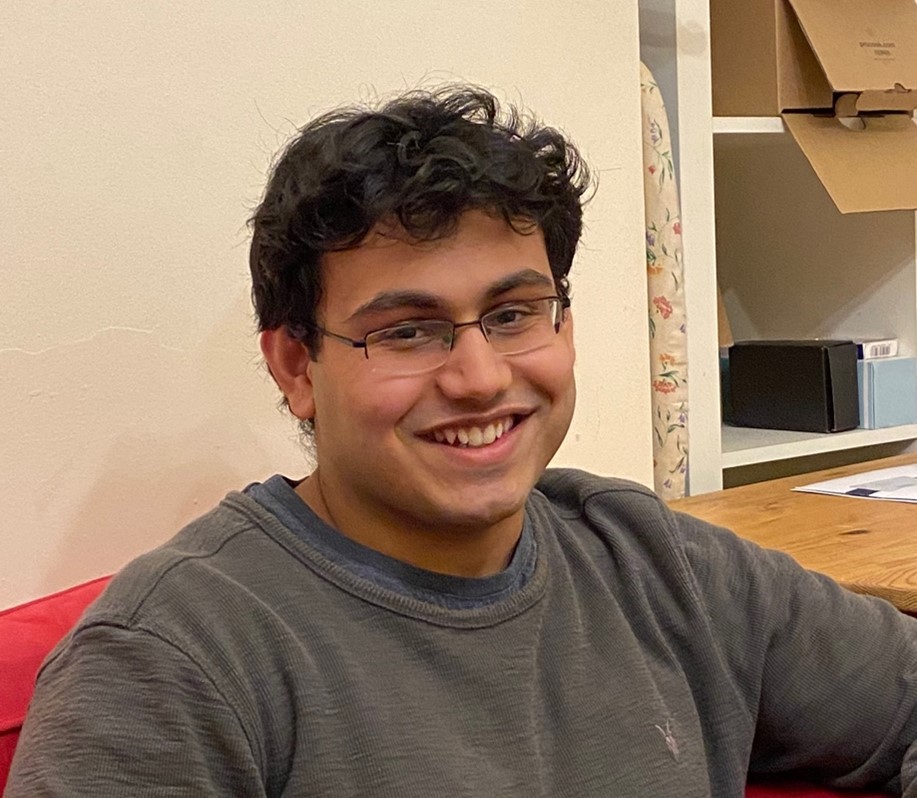
Rohan Sekhri
Project Title
3D printed synthetic tissues for patterned interactions with cellular populations
Co-sponsored by the Institute of Chemical Biology EPSRC Centre for Doctoral Training and The NIHR Imperial Biomedical Research Centre (BRC)
What were you doing before enrolling in the ICB CDT Programme?
Before my PhD, I completed a BSc in Chemistry at Durham University followed by a 1-year MRes at Imperial in Biological and Physical Chemistry. My research focussed on understanding protein aggregation in Parkinson’s disease using both computational and experimental techniques.
Why did you choose to apply for your particular project?
I am very interested in synthetic biology and its practical application in the development of artificial cells and tissues so this project seemed like an obvious choice. Additionally, the interdisciplinary nature of the project appealed to me, the chance to combine aspects of engineering, chemistry and biology excites me.
What are you looking forward to the most within the CDT programme?
I’m looking forward to making the most of the ICBs wide range of opportunities outside of just research, especially science communication with the BBC!
Please tell us a fun fact about yourself!
Having spent three years at an international school in New Delhi as a child, I can play rock paper scissors in Korean!
Name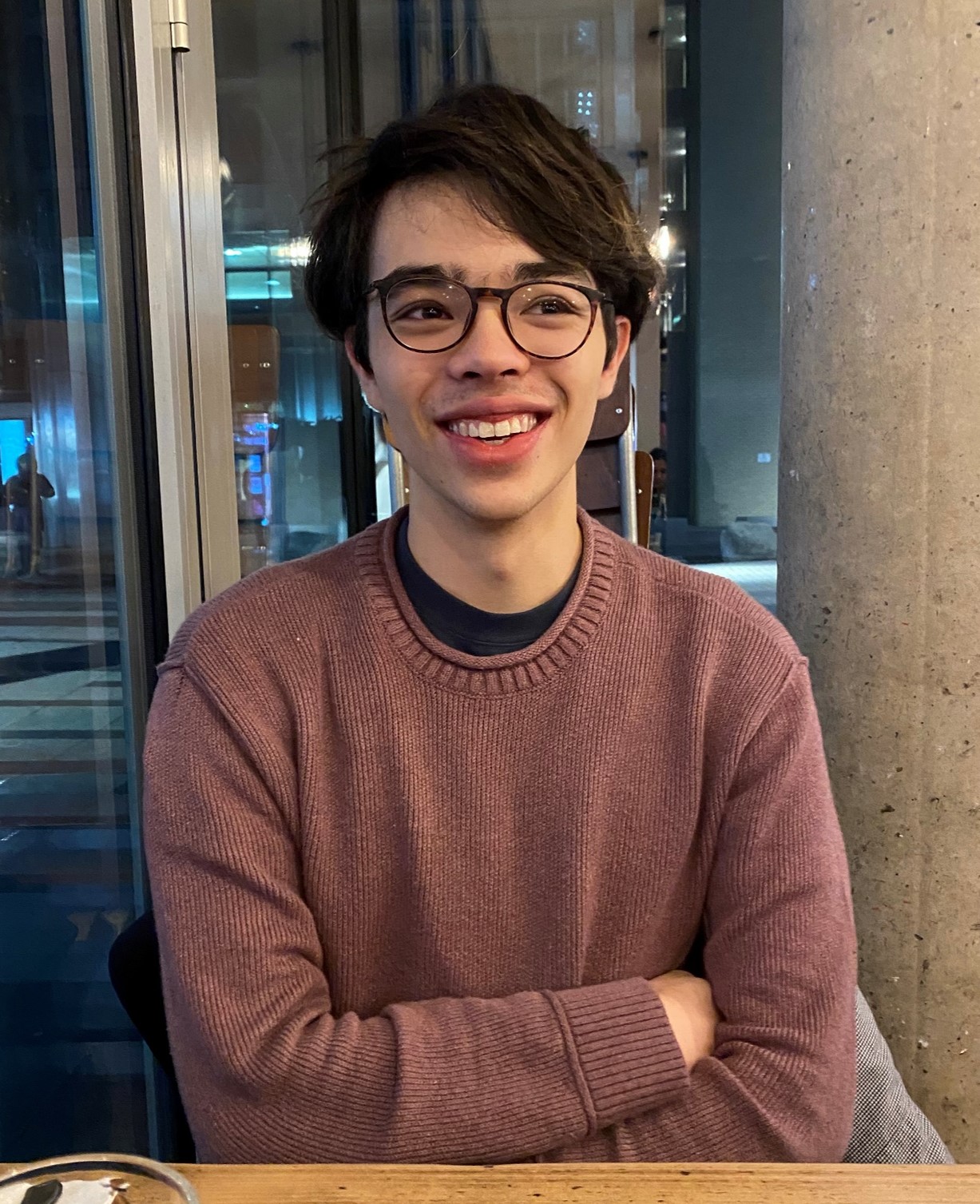
Jak Soon
Project Title
Unlocking a new generation of antimicrobial resistance targets by high-throughput lipidomics drug discovery
Co-sponsored by the Institute of Chemical Biology EPSRC Centre for Doctoral Training and The NIHR Imperial Biomedical Research Centre (BRC)
What were you doing before enrolling in the ICB CDT Programme?
I completed my MSci in Natural Sciences (Synthetic Organic Chemistry and Molecular and Cell Biology) at UCL. I conducted my research project in the synthesis of novel ligand candidates for the treatment of EBV at the Wolfson Institute for Biomedical Research within Professor David Selwood’s Lab. I also conducted a project at the UCL School of Pharmacy on the isolation of exosomes carrying M.tuberculosis proteins.
Why did you choose to apply for your particular project?
I have always enjoyed aspects of both organic chemistry and biology and as this project lies on the interface of both disciplines involving skills from both sides, I found it was the best project to combine my passions. Beyond this, in my master’s project I kindled a passion for medicinal chemistry and drug discovery related topics. The focus on antimicrobials also allows me to explore a new direction in my studies to expand my knowledge and try something new.
What are you looking forward to the most within the CDT programme?
I’m most excited about getting stuck back into lab work. Although more specific to the CDT I’m quite excited about EVOLVE programme and other cohort-based training/activities.
Please tell us a fun fact about yourself!
I am a big tea and coffee enthusiast, and I’ve learnt far too many ways to make both.
Name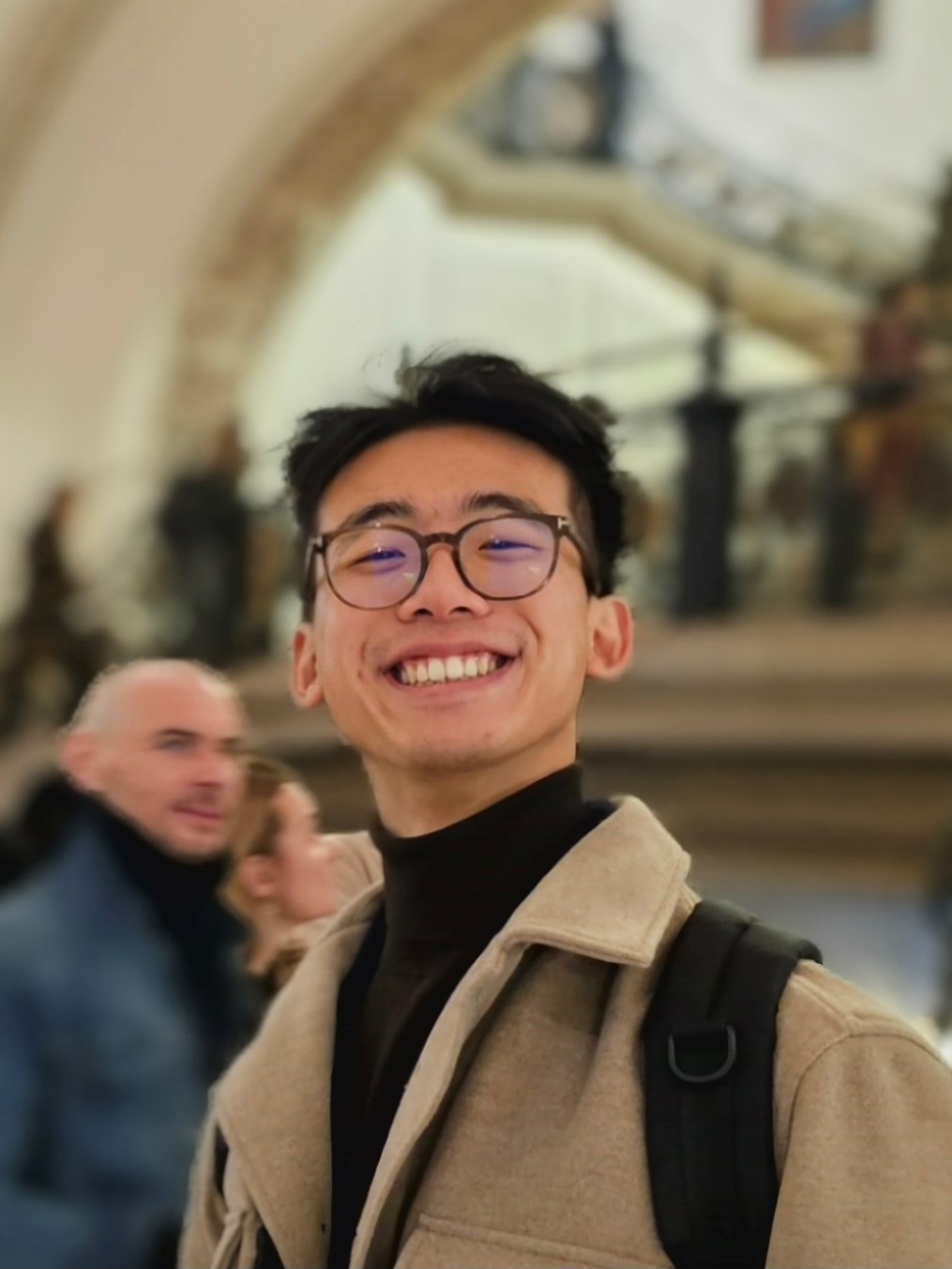
David Tsang
Project Title
Engineering synthetic cells using next-generation robotics and machine learning
What were you doing before enrolling in the ICB CDT Programme?
I was studying the MRes in Systems & Synthetic Biology at Imperial College London. I was working on 3D-bioprinted multiresponsive synthetic tissues using synthetic cells as a signal mediator between stimuli and a fluorescent reporter bacterial biosensor that cannot detect it natively, all in a gel droplet architecture.
Why did you choose to apply for your particular project?
I worked on synthetic cells in my MRes in Systems & Synthetic Biology project and realised the limited access to the synthetic cell design space that researchers had with the current lab work techniques. Coming from an engineering undergraduate background, my interest in employing robotics and machine learning in a synthetic biology context was the main driving force to pursue this project.
What are you looking forward to the most within the CDT programme?
I am very eager to kickstart my new academic journey in my chosen project that will marry my interests in synthetic biology and robotics and am also looking forward to all the cohort activities in the Future Labs, bioentrepreneurship, EVOLVE, and retreats!
Please tell us a fun fact about yourself!
A fusion of STEM disciplines, cultures, and jazz, I am also a fan of fusion cuisine and was said to allegedly cook up a pretty mean Kimchi Carbonara
Name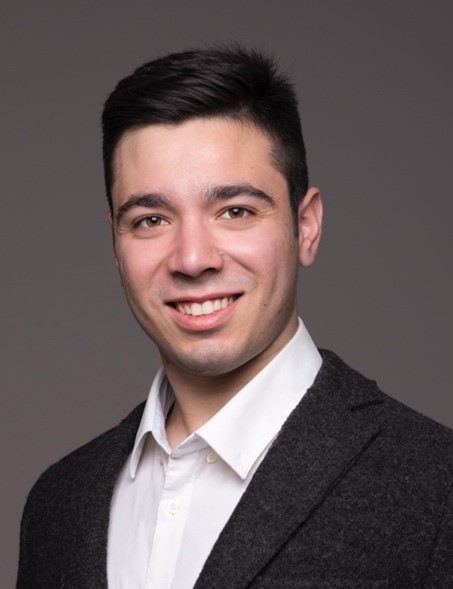
Athos Vacanas
Project Title
A systems biology approach to understand the role of skin microbiome in healing of micro-wounds on the face and neck
This project is funded by the Institute of Chemical Biology EPSRC Centre for Doctoral Training and Procter & Gamble
What were you doing before enrolling in the ICB CDT Programme?
I completed my BSc Biological Sciences and MRes Bioinformatics and Theoretical Systems Biology at Imperial College London.
My undergraduate degree comprised of modules in neuroscience, genetics, computational omics and integrative systems biology. I discovered quite early on that I prefer the computational view of biological systems to the experimental one. I remember myself always being captivated by the power of computational models to capture biological behaviour. The fact that inherently deterministic mathematical equations could be used to simplify, explain and rationalise the intricate interactions in nature was fascinating to me.
For my master’s thesis, I built an in silico mechanistic model of the skin microbiome in atopic dermatitis, to predict the effect of a novel bacteriotherapy, under the supervision of Professor Reiko Tanaka in the department of Bioengineering. I uncovered the main interactions between skin bacteria driving observed bacterial abundances on the skin, and how these bacterial abundances control the skin’s health status. Leveraging the same interactions, I explored the opportunity to use a genetically engineered bacterium to modulate skin bacteria abundances and treat atopic dermatitis.
Why did you choose to apply for your particular project?
My master’s thesis project was pivotal for me. It struck a perfect balance between mathematical biology, chemical biology, computation, microbiology and immunology. These are topics I had enjoyed in my undergrad as well, but did not pursue in preference to the Bioinformatics and Theoretical Systems Biology. This PhD uniquely offers the chance to re-connect with these topics within the realm of computational modelling, and also simultaneously spans chemical and physical fields which interest me. This is the main reason for which I chose this project. I am excited to explore the role of the skin microbiome on the skin’s properties and behaviour, specifically in micro-wound healing on the face and neck.
This project also offers important networking opportunities both in academia and in industry, given that the supervisory team spans Imperial College, P&G Reading Innovation Centre, and Northumbria University.
What are you looking forward to the most within the CDT programme?
The 1+3 structure of the EPSRC CDT studentship is a once-in-a-lifetime opportunity to learn to work using a multidisciplinary approach, which I believe is fundamental when tackling real world problems. I am intrigued by the opportunity to work in vivo and in vitro, to collect my own data to feed into my computational model. Learning the chemical aspect of biological systems will be key to building a multi-scale understanding of the role of skin microbiome in wound healing. Being able to not only experience but also drive the synergistic relationship between experimental data and computational modelling is invaluable and rare. As a biologist, I am very eager to put my white coat and goggles back on and collect data for model construction, parametrisation, and validation, with the model’s output informing further data collection.
Please tell us a fun fact about yourself!
I am Captain of the Latin and Ballroom division of Imperial’s Dance club and have been competing in the University circle and at National Amateur level for 2 years.
Name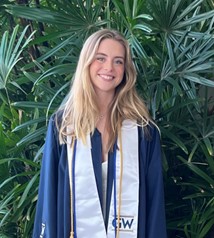
Daisy Williams
Project Title
Chemical proteomic discovery of covalent ligands for novel drug targets in Myc-deregulated cancers
Co-sponsored by the Institute of Chemical Biology EPSRC Centre for Doctoral Training and Merck KGaA
What were you doing before enrolling in the ICB CDT Programme?
I completed my undergraduate degree in the U.S. where I double majored in Chemistry and Neuroscience. I then joined the ICB as an MRes student where I worked on the directed evolution of the Sortase A enzyme for the development of a ubiquitin profiling platform.
Why did you choose to apply for your particular project?
During my undergraduate degree I discovered a profound appreciation for the intersection of chemical principles and complex biological systems which ultimately led to my passion for chemical biology. This project represents the culmination of my interests in organic synthesis, chemical proteomics and machine learning. I am eager to apply my knowledge of molecular biology methods to investigate cysteine reactivity and covalent ligandability using chemical probes and high-throughput proteomics techniques. This work would afford me the opportunity to participate in identifying potential targets for Myc-deregulated cancers and, in consequence, play a role in expanding the drug space.
What are you looking forward to the most within the CDT programme?
The CDT offers interdisciplinary and collaborative opportunities that I have already been able to appreciate through my experience as an MRes student in the programme. The CDT’s strong emphasis on outreach and social engagement aligns with my own priorities and I am particularly eager to become involved in these opportunities. Additionally, I look forward to refining my science communication skills through the extensive range of courses and programs offered by the CDT.
Please tell us a fun fact about yourself!
I have lived in three countries so far in my life!
Name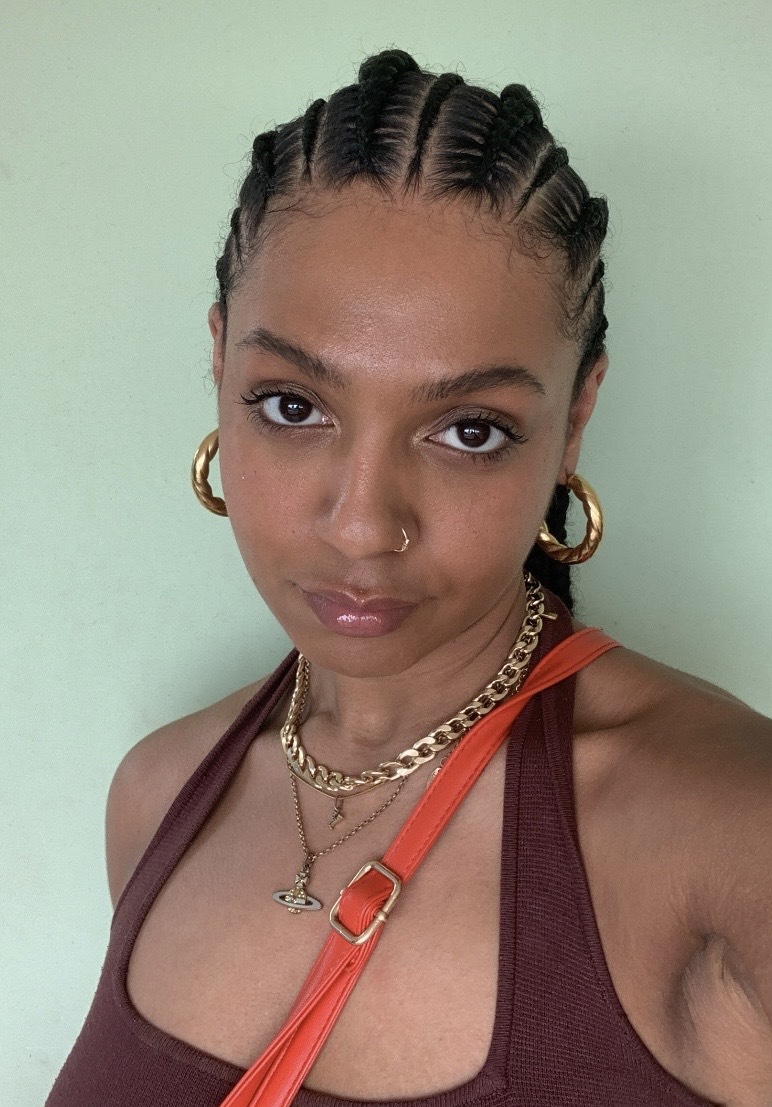
Yasmin Gariba-Hamilton
Project Title
Investigating Production and Quantification of Siderophores in Characterised Microbial Environments
This project has been made possible via the Partner Research Institute Scheme with FreshCheck
What were you doing before enrolling in the ICB CDT Programme?
I graduated with an MSci in Chemistry in 2021 from Kings’ College London. Since then, I have been working as a Research Scientist at FreshCheck: Confirming Hygiene. FreshCheck are a biotechnology start-up who make hygiene verification systems to aid against microbial outbreaks, primarily in food production facilities, e.g. factories and restaurants. Here, I have spent most of my time researching our product sensitivity levels on various strains of bacteria and fungi by upregulating their production of our target molecule - siderophores.
Why did you choose to apply for your particular project?
I have always been interested in the intersection of biology and chemistry, so have naturally I was drawn to studying bacterial side of our research in my current position. However, I soon realised there is a large gap in literature regarding siderophore secretion in so-called ‘real world’ in-vivo settings. With 100s of known structures of siderophores and often multiple types secreted at once yet little known about what triggers individual production pathways, I aim to help fill a gap in more accurate characterisation of siderophores specifically in foodborne microbials. In this, we can help prevent public outbreaks of diseases derived from food by improving technology for early detection of their presence.
What are you looking forward to the most within the CDT programme?
Besides furthering my own research, I am excited to learn more about all the cutting-edge research going on in the department! Additionally, I look forward to bridging the gap between academic and industry-based research and getting involved in all the outreach initiatives Imperial has to offer.
Please tell us a fun fact about yourself!
I spend most of my free time making music – I sing in a jazz/RnB band!
Name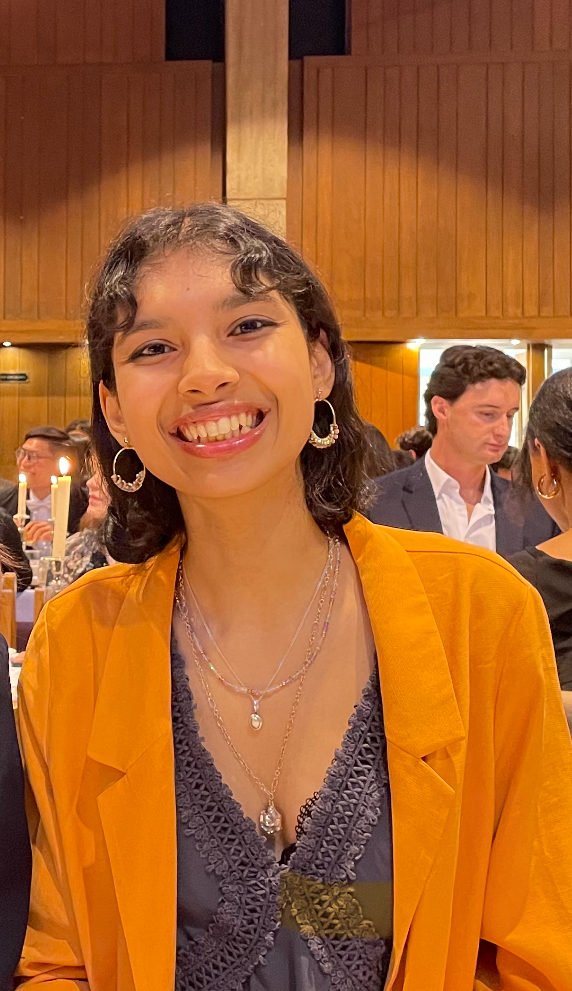
Srija Ghosh
Project Title
Investigating whether ROS (Reactive Oxygen Species) production by Cu(II) complexes is lethal for pathogenic bacteria
This project is funded by The Francis Crick Institute and the Department of Chemistry, Imperial College London
What were you doing before enrolling in the ICB CDT Programme?
I completed an integrated Masters at the University of Oxford earlier this year and enjoyed a couple of months off before starting my PhD. In my 4th year, I worked in the Langton group to synthesise and assess a photocaged transmembrane chloride ion transporter system with potential applications in cystic fibrosis, epilepsy and cancer treatments. This was the first time I was able to engage creatively with the science I had learned during lectures, and I found it so exciting to know I could make a tangible impact.
Why did you choose to apply for your particular project?
Antimicrobial resistance (AMR) is becoming increasingly prevalent and currently most drugs in the pipeline are susceptible to resistance as their structures are minor modifications of existing antibiotics. Metal complexes are effective bactericidal agents as they can operate by metal specific mechanisms of action and so are less likely to gain AMR. I was very keen to work on this project as it will allow me to approach AMR from a chemical perspective and make an impact. In addition, I will get the opportunity to collaborate with both the Hess lab at the Francis Crick Institute and the Roessler lab at Imperial to use exciting techniques that they are experts in, such as metallodrug synthesis, bacterial testing and electron paramagnetic resonance (EPR) methods.
What are you looking forward to the most within the CDT programme?
Learning from and being inspired by the brightest minds during CDT lectures, workshops and networking events.
Please tell us a fun fact about yourself!
I got to visit the Toblerone mountain this summer!
Name
Kyan Li
Project Title
Transforming Sepsis Diagnostics: Simultaneous detection of biomarkers for enhanced patient outcomes
What were you doing before enrolling in the ICB CDT Programme?
I did my bachelor’s degree in The University of Manchester majoring in Materials Science and Engineering. I had a great journey there. Then I moved to imperial for my master’s in the department of Materials. My project is about synthesizing TiO2 thin film and deposit copper onto the film, trying to prove that only the grain boundaries of TiO2 thin film is conductive. After I finished my masters, I took half a year gap, travelling around the world and spent time with my family and friends.
Why did you choose to apply for your particular project?
When I found Joshua Edel group, what they achieved in the past few years was impressive. They use DNA to detect microRNA which has gained great attention these days. I was quite interested in this bionanotechnology. So, I decided to apply. Luckily, I’m in.
What are you looking forward to the most within the CDT programme?
I want to use my own technology to build up a company.
Please tell us a fun fact about yourself!
I enjoy playing video games and basketball. I’m also a big fan of Manchester City.
Name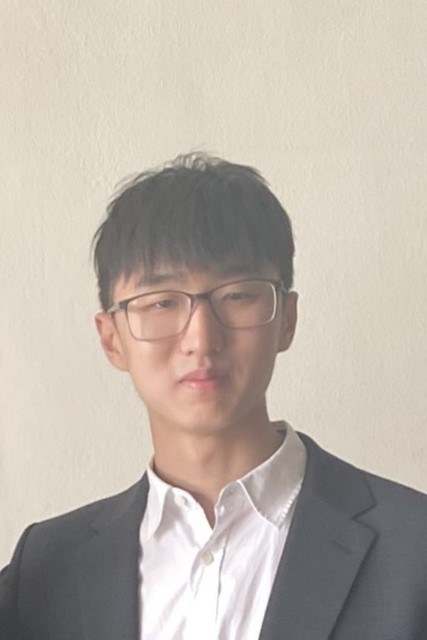
Guanghao Xu
Project Title
Structure-Based Optimisations of α-Helix Mimetics for Targeting the Human Androgen Receptor
What were you doing before enrolling in the ICB CDT Programme?
I completed my master’s in organic chemistry at UCL before beginning my PhD at Imperial College London. My master’s project focused on the synthesis of novel small-molecule inhibitors targeting the coronavirus helicase.
Why did you choose to apply for your particular project?
I’m highly interested in organic synthesis and its application in medicinal chemistry. My project at Imperial primarily involves structural modifications of a lead compound and further optimisation of its established synthetic route. This work allows me to enhance my skills in organic synthesis while gaining valuable knowledge in chemical biology.
What are you looking forward to the most within the CDT programme?
I look forward to the opportunity to work and connect with scientists from interdisciplinary backgrounds and to learn from them.
Please tell us a fun fact about yourself!
I enjoy archery and snowboarding.
EPSRC CDT in Chemical Biology - Innovation for the Life Sciences Students
ICB CDT students
Date last reviewed: 14 October 2024
Date last updated: 14 October 2024


